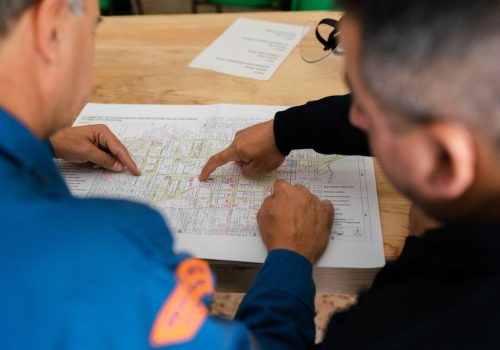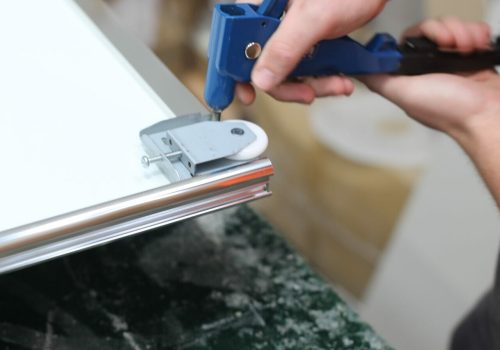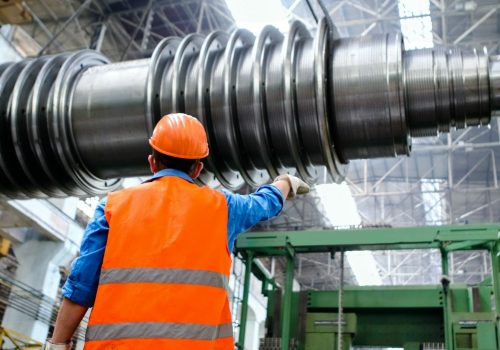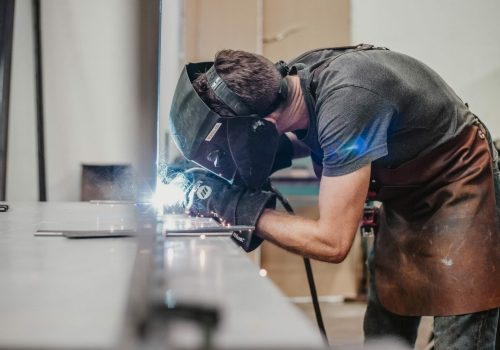
Trade Licence
A trade licence gives you permission to work in your desired trade or operate a business. Acquiring a trade licence is crucial in establishing credibility and assuring clients of your expertise. One of the initial steps in obtaining this licence is demonstrating your relevant abilities with a nationally recognised and accredited qualification.
It is important to remember that Registered Training Organisations do not award trade licences. However, attaining a nationally-recognised qualification via our Registered Training Organisations (RTOs), Gimbal Construction (RTO ID 32201) and Gimbal Engineering (RTO ID 31820), is one of the most essential steps to achieving a licence.
Trade licences in Australia
What trades require a licence in Australia?
Trade licences are how the government regulates trade professions. Licences ensure that tradespeople are fully qualified and can operate tools while following all safety protocols. This sets a standard of quality and safety for workers, businesses and customers.
Some of the construction professions that need a licence within New South Wales and Queensland include:
- Wall & ceiling liner
- Cabinet maker
- Glass and glazing
- Painter
- Metal fabricator
- Wall & floor tiler
Why should I get a trade licence?
If you want to operate as an independent contractor or start a business that will go on to contract, subcontract or advertise for residential or commercial trade work over a few thousand dollars (depending on the state) you will need a licence. In Queensland and New South Wales, tradespeople working commercially on large projects require licenses.
On top of that, there are several other reasons why you should get a trade licence. Here are few of the important ones:
Safety:
These trades involve work that can be hazardous if not performed correctly. For example, a tradie not knowing how to use a forklift could lead to disastrous results.
A licence ensures that the tradesperson has the required skills, knowledge, and training to carry out tasks safely and according to industry standards, reducing the risk of accidents, injuries, or property damage.
Compliance:
Trade licences are a way to enforce compliance with the relevant laws, codes, and regulations governing these industries. Licensed tradespeople must adhere to these guidelines, ensuring their work meets the required quality and safety standards. You can read the guidelines for NSW and QLD based on which state you’re in.
Consumer Protection:
Licensing helps protect consumers from unqualified or unscrupulous tradespeople. A licensed tradesperson has demonstrated competence, which can give clients confidence in the quality of their work. Licensing also provides a framework for addressing disputes or complaints, giving consumers recourse in case of poor quality or other issues.
Professionalism and Credibility:
A trade licence signifies that a tradesperson has met specific industry requirements and undergone proper training and assessment. This certification enhances their professional reputation, making them more attractive to potential clients or employers.
Continuing Education and Skill Development:
Licensed trades often have ongoing education and skill development requirements, ensuring that tradespeople stay up-to-date with the latest techniques, technologies, industry best practices, and safety protocols. Acquiring a licence promotes a high level of expertise and ongoing training, and contributes to tradespeople’s overall quality of work.
RPL Enquiry Form
Browse Our Courses

MEM40119 – Certificate IV in Engineering
How RPL Is Assessed
Skilled migration in Australia allows you to have your qualifications and work experience recognised, enabling you to work in your field. By obtaining a nationally recognised certificate, you can validate your expertise and enhance your chances of securing a relevant job. Our skills assessment services, help you take a crucial step toward advancing your career in Australia.
With our simple six-step process, you’ll have your formal qualification in a short period of time.

Step 1: Enquiry
Gimbal Group offers comprehensive Engineers Australia skill assessments to help you take the next step in your professional journey. Our experienced team is here to guide you through the process, ensuring all requirements are met and your application is as strong as possible. Speak to one of our friendly team members today to get started on your consultation and begin your path to success.

Step 2: Pre-enrolment
In this step, we ensure you are eligible for an RPL by asking you the necessary questions and giving you login details for our online platform. Collect and organise your experience for your assessor with a combination of workplace documents, interviews, videos and reports from previous employers.
The assessor will then make contact to discuss your application, explain the process and let you know what further evidence is required including workplace documents, references and videos

Step 3: Enrolment
In this step you complete an online knowledge test, provide any additional video evidence and complete an interview with the Assessor on the technical aspects of your qualification

Step 4: Gap Training
After an assessment, your assessor may decide you need further training to address the gaps in your knowledge or practical skills and will advise you how to proceed.

Step 5: Assessment Outcome
The assessor creates a report with a recommendation based on the evidence you have provided, outcome of written test and interviews. This is submitted to the Compliance department for approval.

Step 6: Final Approval
You are issued your nationally recognised qualification and provided with the necessary documents.
Frequently asked questions
What is the difference between trade certification and trade licence?
A trade certification is provided after assessing your skills, whereas a trade licence is a legal document required to conduct any professional trade and commercial activities in the building industry.
Qualifications in trade areas are generally at a certificate level and are one-off qualifications that involve education and training in the knowledge and practical skills of your trade. RTOs can award trade qualifications after training through an apprenticeship pathway, or after an RPL process has been completed. Trade qualification ensures that you have completed all the theoretical and practical modules of each course.
Licences are given out by regulatory state authorities in Australia. In Queensland, the QBCC awards and regulates most trade licences. In New South Wales, NSW Fair Trading manages licences. A tradesperson must complete a trade qualification (according to the requirements) if they want to be licenced. Apart from trade qualification, each candidate must fulfil other requirements to obtain a licence.
While Gimbal Training provides a pathway for trade certification, we do not offer trade licences. However, our RPL, skill assessment, and trade certification processes can help you complete an important step towards acquiring your trade licences.
What are the benefits of having a trade licence in Australia?
In Australia, having a trade licence ensures that you are operating within the legal framework of your industry, protecting you from potential fines, penalties, or even the suspension of your business. In addition, being a licensed tradesperson signifies that you have met the necessary training, skills, and qualification requirements, thus increasing your credibility among clients and peers.
How long does it take to get a trade licence in Australia?
Processing times depend on your application and the regulatory authority. For updates on timelines and state requirements, it’s best to refer to the relevant state authorities for more information on timelines.
Do I need a trade licence to work as a subcontractor in Australia?
For many skilled trades, such as electrical, plumbing, building, and construction, you will need a valid trade licence to work as a subcontractor legally.
Trade licence ensures that you, as a subcontractor, have the qualifications, skills, and experience to carry out your work safely and to industry standards. These licences also protect consumers and ensure compliance with relevant laws and regulations.
If you are working as a subcontractor under the direct supervision of a licensed contractor or tradesperson, you might not need a separate licence yourself. However, it’s crucial to verify the requirements with the relevant licensing authority to ensure compliance.
Do trade licences vary from state to state?
As regulations may vary, it is essential to check the licensing requirements for your specific trade and the state or territory you intend to work in. Failure to hold the appropriate licence may result in fines, penalties, or legal action. Get in touch with Gimbal Training to know more about trades related to construction and engineering today!
Feel free to fill in this form to get in touch with us and we will get back to you as soon as possible.






